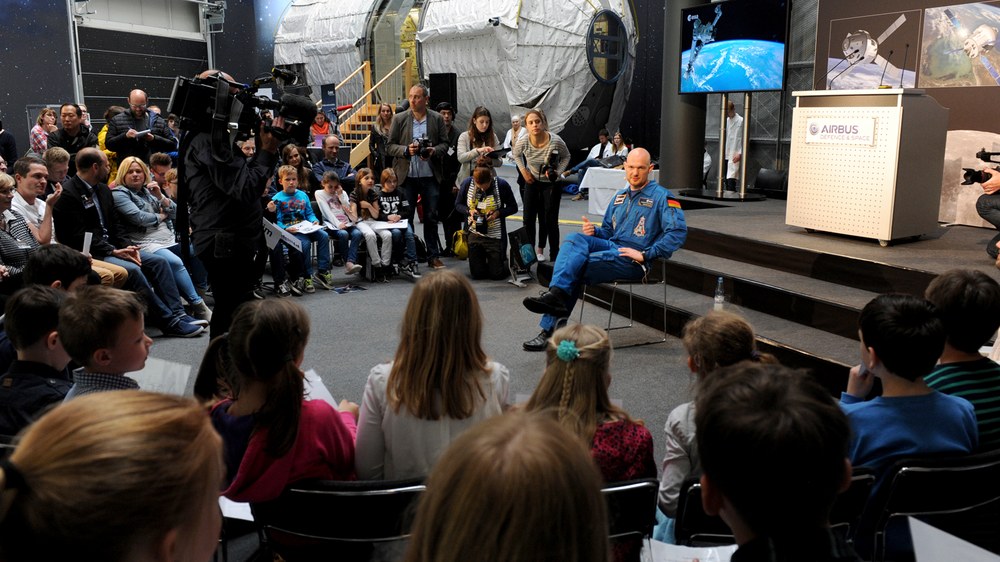DLR_School_Lab Club


The events that DLR_School_Lab Bremen would like to offer its club members should be special and exclusive. Anyone who wants to take part can now apply to join. A total of 25 pupils aged 14 and over can be accepted into the DLR_School_Lab Club. "We are not interested in school grades, but in motivation and interest in science," emphasises Dr Dirk Stiefs, Head of DLR_School_Lab Bremen. There will be special events around four to six times a year. "We are looking for a spirit of research and creativity."
Asteroid day with lectures and experiments
In addition to a cover letter, applicants must also complete a questionnaire for their application: "What fascinates you most about science and technology? Have you been involved with science and technology outside of the classroom? If so, how?" are two of the questions that the future club members have to answer. The DLR_School_Lab Club, which already exists in a similar form at DLR's school laboratories in Neustrelitz and Berlin, is intended to give pupils the opportunity to familiarise themselves with science independently of classroom visits. The club will be founded on 26 October 2016 together with the German ESA astronaut Dr Reinold Ewald. For the fast applicants, there will already be presentations by DLR scientists from the MASCOT team on International Asteroid Day, 30 June 2016. The asteroid lander MASCOT, which was designed, built and tested at DLR Bremen, is currently flying to the asteroid 1999 JU3 on board the Japanese space probe Hayabusa 2 and is scheduled to land there in 2019. After the presentation, the engineers will also be available to talk to the students. Club members will also be able to use a new experiment at the premiere to explore how asteroids and comets move in the solar system.
Fun with science and technology
"We already have lots of ideas and plans for the next special events with our young club researchers: We want to invite guests such as astronauts and scientists and come up with new experiments," explains Dr Dirk Stiefs. The club is intended as a reward for committed pupils who enjoy science and technology. The events will primarily take place during non-school hours so that as many members as possible can take part. "It would be great if the groups could develop their own momentum, if younger students could work together with older students and conduct research and possibly even produce work for Jugend forscht."
The team of the future DLR_School_Lab Club wants to take its time to select its members. In addition to a cover letter and a completed questionnaire, applicants are asked to submit additional documents - teacher recommendations, certificates or even initial small research projects. "We are open to many things." That's why the last question in the questionnaire is: "What else should we know about you for your application?"
